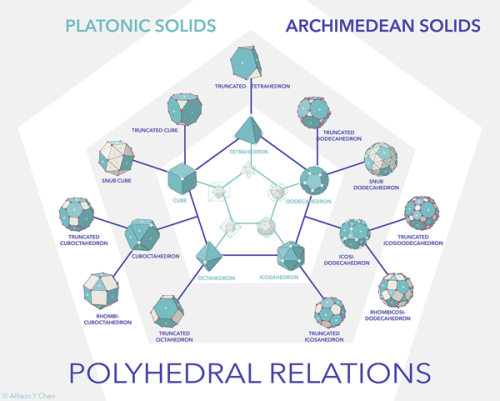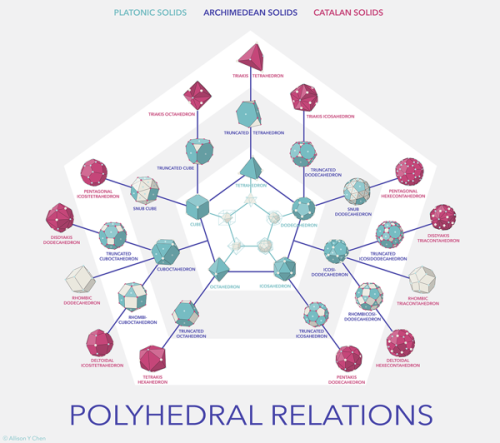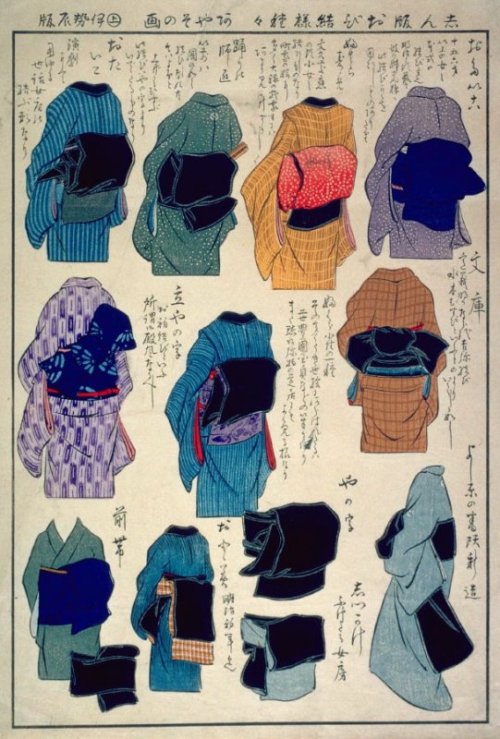The Christopher Robin Story Book From When We Were Very Young, Now We Are Six, Winnie The Pooh, The House







The Christopher Robin Story Book from When we were very young, Now we are six, Winnie the Pooh, The House at Pooh Corner by AA Milne Illustrated by Ernest H Shepard London Methuen & Co Ltd. First Edition 1929
More Posts from Philosophical-amoeba and Others
The day my sister, Jessica, discovered Comic Sans, her entire world changed. She’s dyslexic and struggled through school until she was finally diagnosed in her early twenties, enabling her to build up a personal set of tools for navigating the written world. “For me, being able to use Comic Sans is similar to a mobility aid, or a visual aid, or a hearing aid,” she tells me while we’re both visiting our family in Maryland. “I have other ways of writing and reading, but they’re not like they are for someone who’s not dyslexic.” The irregular shapes of the letters in Comic Sans allow her to focus on the individual parts of words. While many fonts use repeated shapes to create different letters, such as a “p” rotated to made a “q,” Comic Sans uses few repeated shapes, creating distinct letters (although it does have a mirrored “b” and “d”). Comic Sans is one of a few typefaces recommended by influential organizations like the British Dyslexia Association and the Dyslexia Association of Ireland. Using Comic Sans has made it possible for Jessica to complete a rigorous program in marine zoology at Bangor University in Wales. […] I asked Jessica to tell me what she’s up against. She’s been told that Comic Sans is “unprofessional. That it’s juvenile. That it’s stupid. That it basically shouldn’t be used for anything at all, unless it is a comic.” There are fonts that have been specifically created for people with dyslexia, all of which lack the clean minimalism or elegant balance and perfect kerning favored by typography snobs. But they are crucial disability aids. Some are free, such as Lexie Readable (which calls itself “Comic Sans for grown-ups”), Open-Dyslexic, and Dyslexie. Others are for purchase or are publisher-owned and unavailable to the general public. But for Jessica, Comic Sans is still the best. “I don’t use Open Dyslexic because it’s not as easy for me to read,” Jessica says. “It’s not my font. I was dyslexic before Open Dyslexic happened. My mind has been getting used to Comic Sans.” Not everyone with dyslexia uses Comic Sans to help them read and write. “Other people with dyslexia find that having colored paper makes it easier,” Jessica says. “Or some people find Arial easier.” Comic Sans and Arial are readily available because they are included by default in many operating systems and word-processing programs, and they are web-safe fonts.
Hating Comic Sans is Ableist by Lauren Hudgins on The Establishment. (via allthingslinguistic)

We are not certain of the age of this display card. The half-pound packet of butter does not show the familiar 2 ounce division lines that were typical of the one pound packet around the 1950s. The card could be from as early as 1934 when one business advisor is quoted in the papers as suggesting that the Dairy Board should establish three large patting plants, say, in London, Manchester and Glasgow, where bulk New Zealand butter would be examined and then repacked in ¼ pound, ½ pound and 1 pound pats under the ‘Fernleaf’ brand, starting with 20,000 boxes a week, and gradually increasing this amount over several years.
Fernleaf New Zealand butter; a pure natural food. [Display card. 1950s?]
Eph-F-DAIRY-1950s-01
Molecule of the Day: VX


VX (C11H26NO2PS) is a colourless, odourless, oily liquid under room temperatures. It is a member of the V-series of nerve agents, and is an extremely potent poison - only 0.01 grams of it is needed to kill a person by skin contact. VX was recently implicated in the assassination of Kim Jong-nam, the half-brother of the North Korean leader Kim Jong-un, in Malaysia.
VX is a potent inhibitor of acetylcholinesterase, which breaks down the neurotransmitter acetylcholine into acetic acid and choline. The normal function of the enzyme is to regulate the concentration of acetylcholine within the synaptic cleft, so as to control the frequency of binding of acetylcholine to cholinergic receptors on the postsynaptic cell membrane and hence the transmission of impulses across the synapse.

Consequently, the inhibition of acetylcholinesterase results in a rapid increase in the synaptic concentration of acetylcholine, as the presynaptic knob continues to synthesise it and secrete it into the synaptic cleft. As a result, the cholinergic receptors on the postsynaptic cell membrane are continually stimulated, and a rapid series of action potentials are triggered. This results in muscle spasms and eventual paralysis, leading to death by asphyxiation due to paralysis of the diaphragm.

VX exposure is usually treated using an injection of atropine and pralidoxime. Atropine inhibits certain cholinergic receptors, reducing the binding of acetylcholine to receptors and thus the triggering of action potentials. On the other hand, one end of pralidoxime binds to acetylcholinesterase and the other binds to the phosphate group of VX, which causes the VX molecule to detach from the enzyme together with the pralidoxime molecule (see below). This restores the ability of acetylcholinesterase to hydrolyse acetylcholine, hence reducing its synaptic levels.

VX is synthesised from phosphorus trichloride over multiple steps; first, it is methylated, reacted with ethanol, then transesterified with N,N-diisopropylaminoethanol to produce QL. This is then oxidised with sulfur, and isomerised via heating to produce VX.


“The Mouse chirpeth… The Duck quaketh… The Wolf howleth” — from the very first picture book for children, published in 1658: http://buff.ly/2l6FaBH









Japan’s annual Wara Art Festival (previously featured here), one of our favorite signs that autumn has returned, is now underway at Uwasekigata Park. “Wara” is the Japanese term for rice straw. It’s what remains after the rice harvest. Some regions use it to feed livestock or improve the soil. But in Niigata Prefecture it’s used to make these enormous sculptures.
The Wara Art Festival all started in 2006 when the local district reached out to Musashino Art University to seek guidance on transforming their abundant amount of rice straw into art. And in 2008, the very first Wara Art Festival was held. Since then, every year the school sends art students up to Niigata to assist in creating sculptures made out of rice straw. The festivities have ended but the sculptures are on display through October 31, 2017.
To mark the 10th anniversary of the Wara Art Festival participants made this year’s sculptures twice as big as usual.

Visit the Wara Art Festival Facebook page for more photos of these magnificent sculptures.
[via My Modern Met and Spoon & Tamago]
Sasando
pic: wikipedia

The sasando is a harp-like musical instrument from East Nusa Tenggara, Indonesia, specifically in the island of Rote. The name is derived from the Rote dialect word “sasandu” meaning “vibrating or sounded instrument.” It can have 28 or 56 strings.
There’s a folktale that explained the origins of the sasando. Once, there was a boy called Sangguana who lived in Rote. One day, he was tired and fell asleep under a palmyra tree, and dreamt that he played beautiful music with a unique instrument that made an enchanting sound. When he woke up, Sangguana was able to vividly remember the melody he played in the dream. He wanted to hear it once more, so he slept again, and dreamt of the same song and the same instrument. Sangguana had to wake up, eventually, but, not wanting to lose the instrument from his dream, he made an instrument out of palmyra leaves based on the one he saw in his dream, which became the basis for the sasando.
if you want to see how it sounds: (start 0:30)



Platonic solid: In Euclidean geometry, a Platonic solid is a regular, convex polyhedron with congruent faces of regular polygons and the same number of faces meeting at each vertex. Five solids meet those criteria, and each is named after its number of faces.
An Archimedean solid is a highly symmetric, semi-regular convex polyhedron composed of two or more types of regular polygons meeting in identical vertices . They are distinct from the Platonic soilds, which are composed of only one type of polygon meeting in identical vertices, and from the Johnson solids, whose regular polygonal faces do not meet in identical vertices.
In mathematics, a Catalan solid, or Archimedean dual, is a dual polyhedron to an Archimedean soild. The Catalan solids are named for the Belgian mathematician, Eugène Catalan, who first described them in 1865.
The Catalan solids are all convex. They are face-transitive but not vertex-transitive. This is because the dual Archimedean solids are vertex-transitive and not face-transitive. Note that unlike Platonic soilds and Archimedean soild, the faces of Catalan solids are not regular polygons. However, the vertex figures of Catalan solids are regular, and they have constant dihedral angles. Additionally, two of the Catalan solids are edge-transitive: the rhombic dodecahedron and the rhombic triacontahedron. These are the duals of the two quasi-regular Archimedean solids.
Images: Polyhedral Relations by Allison Chen on Behance.
-
 iwannasinga reblogged this · 2 years ago
iwannasinga reblogged this · 2 years ago -
 kirkegriim reblogged this · 3 years ago
kirkegriim reblogged this · 3 years ago -
 ke96 liked this · 3 years ago
ke96 liked this · 3 years ago -
 bianthrogirl7 reblogged this · 3 years ago
bianthrogirl7 reblogged this · 3 years ago -
 the-sea-of-immeasurable-loss liked this · 3 years ago
the-sea-of-immeasurable-loss liked this · 3 years ago -
 paleboyblue reblogged this · 3 years ago
paleboyblue reblogged this · 3 years ago -
 ahyounggeeklove liked this · 4 years ago
ahyounggeeklove liked this · 4 years ago -
 masahiroishida liked this · 4 years ago
masahiroishida liked this · 4 years ago -
 rainonthebluemoon liked this · 4 years ago
rainonthebluemoon liked this · 4 years ago -
 gabrielpistol reblogged this · 4 years ago
gabrielpistol reblogged this · 4 years ago -
 gabrielpistol liked this · 4 years ago
gabrielpistol liked this · 4 years ago -
 moonshadowandme reblogged this · 4 years ago
moonshadowandme reblogged this · 4 years ago -
 deactivated220702 liked this · 4 years ago
deactivated220702 liked this · 4 years ago -
 nite-owl-killings liked this · 5 years ago
nite-owl-killings liked this · 5 years ago -
 point-fivepastlightspeed reblogged this · 5 years ago
point-fivepastlightspeed reblogged this · 5 years ago -
 pg-nb liked this · 5 years ago
pg-nb liked this · 5 years ago -
 nefanymhf liked this · 5 years ago
nefanymhf liked this · 5 years ago -
 simp4peopleinarmour liked this · 5 years ago
simp4peopleinarmour liked this · 5 years ago -
 xlittlehorrorstoriesx liked this · 5 years ago
xlittlehorrorstoriesx liked this · 5 years ago -
 placitas reblogged this · 5 years ago
placitas reblogged this · 5 years ago -
 rocksandants liked this · 5 years ago
rocksandants liked this · 5 years ago -
 myshipsareme liked this · 5 years ago
myshipsareme liked this · 5 years ago -
 deliciousunknownpeace liked this · 5 years ago
deliciousunknownpeace liked this · 5 years ago -
 baszodjmegzsofia reblogged this · 5 years ago
baszodjmegzsofia reblogged this · 5 years ago -
 baszodjmegzsofia liked this · 5 years ago
baszodjmegzsofia liked this · 5 years ago -
 alistairthewreck liked this · 5 years ago
alistairthewreck liked this · 5 years ago -
 missdeliadili liked this · 5 years ago
missdeliadili liked this · 5 years ago -
 angeltrs liked this · 5 years ago
angeltrs liked this · 5 years ago -
 niviii liked this · 5 years ago
niviii liked this · 5 years ago -
 mystockintrade liked this · 5 years ago
mystockintrade liked this · 5 years ago -
 meowandjunk reblogged this · 5 years ago
meowandjunk reblogged this · 5 years ago -
 s--u-n-c-o-k-r-e--t liked this · 5 years ago
s--u-n-c-o-k-r-e--t liked this · 5 years ago -
 estetyzm reblogged this · 5 years ago
estetyzm reblogged this · 5 years ago -
 christycomma reblogged this · 5 years ago
christycomma reblogged this · 5 years ago -
 itscallie79 liked this · 5 years ago
itscallie79 liked this · 5 years ago -
 erraticrandomficwriter liked this · 5 years ago
erraticrandomficwriter liked this · 5 years ago -
 ianexietyattacks reblogged this · 5 years ago
ianexietyattacks reblogged this · 5 years ago -
 lifes-better-on-venus liked this · 5 years ago
lifes-better-on-venus liked this · 5 years ago -
 puzzl3cat reblogged this · 5 years ago
puzzl3cat reblogged this · 5 years ago -
 ineffable-writer liked this · 5 years ago
ineffable-writer liked this · 5 years ago -
 alittleoptimistic liked this · 5 years ago
alittleoptimistic liked this · 5 years ago -
 noeieon liked this · 5 years ago
noeieon liked this · 5 years ago -
 darth-mortem liked this · 5 years ago
darth-mortem liked this · 5 years ago -
 echoes-of-reason liked this · 5 years ago
echoes-of-reason liked this · 5 years ago -
 the-v-gees reblogged this · 5 years ago
the-v-gees reblogged this · 5 years ago
A reblog of nerdy and quirky stuff that pique my interest.
291 posts
